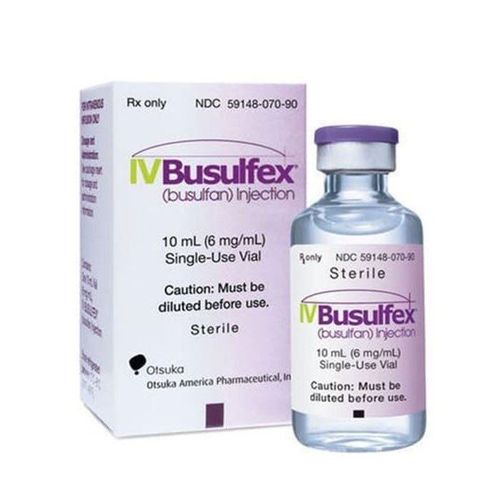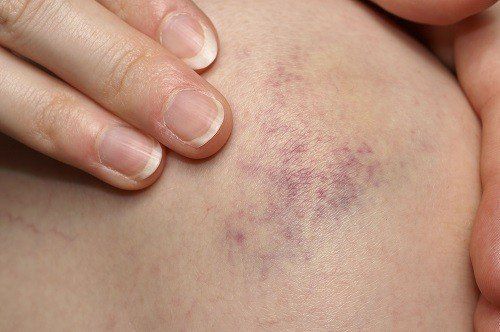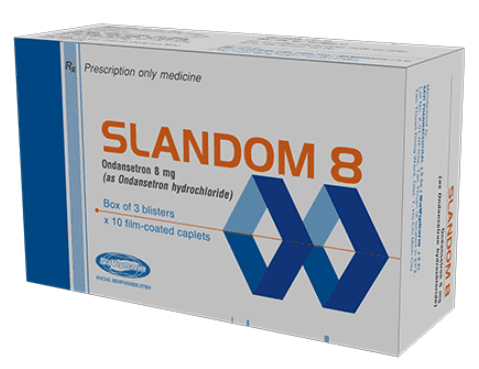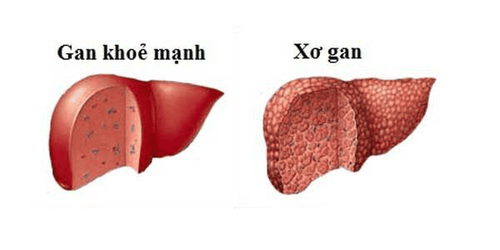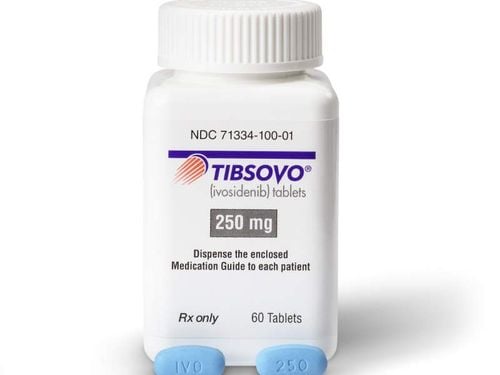This is an automatically translated article.
There are relatively many different ways to treat blood cancer. The blood cancer treatment your doctor recommends will depend on the type of blood cancer you have, your health, and your wishes. You may be prescribed one or more of the treatments listed below.
1. Treatment methods for blood cancer
1.1. Watch and wait Some people with slow-growing blood cancers may not need treatment right away, and some never need treatment. If you have a slow-growing blood cancer, your doctor may recommend watching and waiting. You will have regular checkups and blood tests, but you won't need aggressive blood cancer treatment.
Watch and wait doesn't mean you can't get treatment. This method is recommended when your treating doctor believes there is no additional benefit to starting treatment right away.
If cancer is not causing any bothersome symptoms, watch and wait, this is a safe approach to avoid side effects from cancer treatments. You will only start treatment if and when you need it.
1.2. Chemotherapy Chemotherapy means using cell-killing drugs to kill cancer cells.
Drugs used in chemotherapy are usually given directly into a vein so the drug can be distributed throughout the body through the bloodstream and kill cancer cells. Sometimes chemotherapy drugs are also used in tablet form.
Chemotherapy is usually given in cycles with each cycle being able to continue chemotherapy for a few days and then have a period of rest without treatment. The number of cycles you have and the problems associated with it will depend on the type of blood cancer and the medications you're taking.
Chemotherapy can kill cancer cells, but it also damages healthy cells in your body. This is why chemotherapy always comes with side effects.
1.3. Stem cell transplant A stem cell transplant is the replacement of diseased stem cells in your body with new healthy stem cells.
Stem cells are cells that are still in the early stages of development. Blood cancer occurs when the growth of your blood cells fails and becomes cancerous.
A stem cell transplant can be a treatment for some blood cancers because it involves destroying the abnormal stem cells that are giving rise to cancer cells and giving your body healthy new stem cells, which in turn can make new, healthy blood cells again.
If you need high dose chemotherapy to treat blood cancer due to the effects of chemotherapy causing bone marrow damage, a stem cell transplant may also be used.
There are three types of stem cell transplant:
Autograft / autologous: your own stem cells are collected, stored, and returned to you later by transplant Transplant Transplant Allograft / allogeneic: stem cells from another person (from the donor) are used for transplantation. Allogeneic transplant: if you have twin siblings, stem cells will be taken from them to reduce the chances of rejection as much as possible. The stem cells will be injected into your body through a vein, similar to chemotherapy or a blood transfusion.
1.4. Immunotherapy Immunotherapy is a cancer treatment that uses your own immune system to attack cancer. Any cancer treatment that uses the immune system to help it work can be classified as immunotherapy.
Some immunotherapy drugs work by activating your body's own immune system to find and destroy cancer cells. The drug attaches itself to cancer cells, making it easier for your immune system to find and attack them.
An example of advanced immunotherapy is CAR-T therapy , in which your own T cells (a type of white blood cell normally used in fighting infection) are genetically engineered to increase the ability to find and destroy cancer cells.
1.5. Targeted therapies Targeted therapy is cancer therapy by using drugs to limit the growth and spread of cancer, usually applied on cancer patients. Late stage, advanced cancer and distant metastases that local treatments such as surgery and radiotherapy cannot do.
1.6. Radiation therapy uses high-energy rays, such as X-rays, to kill cancer cells. The drug may be used to treat Hodgkin lymphoma or non-Hodgkin lymphoma. These rays target the part of the body where cancer cells are located, such as specific groups of lymph nodes.
During treatment, you will lie on a flat surface with the radiotherapy machine above you. You won't feel anything during the treatment, but the high-energy rays will target the part of your body being treated. This will damage the cancer cells in the targeted area.
1.7. Surgery Surgery is rarely used to treat blood cancers, although a small number of people with lymphoma need to have their spleen removed.
2. Treatment of blood cancer by adjuvant methods
During treatment and fighting the disease you can try the following:
Learn enough about blood cancer to make decisions about your treatment. Ask your doctor about your blood cancer, including your treatment options and prognosis. As you learn more about your disease, you can become more confident in making treatment decisions. Stay close to friends and family: Keeping close relationships strong will help you cope with your blood cancer. Friends and family will come together to support you emotionally or help with daily tasks when you feel overwhelmed with them. Talk to someone: Find a good listener, willing to hear from you about your hopes and fears. That person could be a family member, friend, counselor or healthcare worker, etc. Take care of yourself: Try to make time for yoga, cooking, or other favorite games. Supplementing your body with nutritious and healthy meals to help you limit the symptoms of anemia and loss of appetite caused by the disease, foods should be cooked thoroughly to make it easier for your body to absorb. Vinmec International General Hospital is one of the hospitals that not only ensures professional quality with a team of leading doctors, modern equipment and technology, but also stands out for its examination and consulting services. and comprehensive, professional medical treatment; civilized, polite, safe and sterile medical examination and treatment space.
Please dial HOTLINE for more information or register for an appointment HERE. Download MyVinmec app to make appointments faster and to manage your bookings easily.





